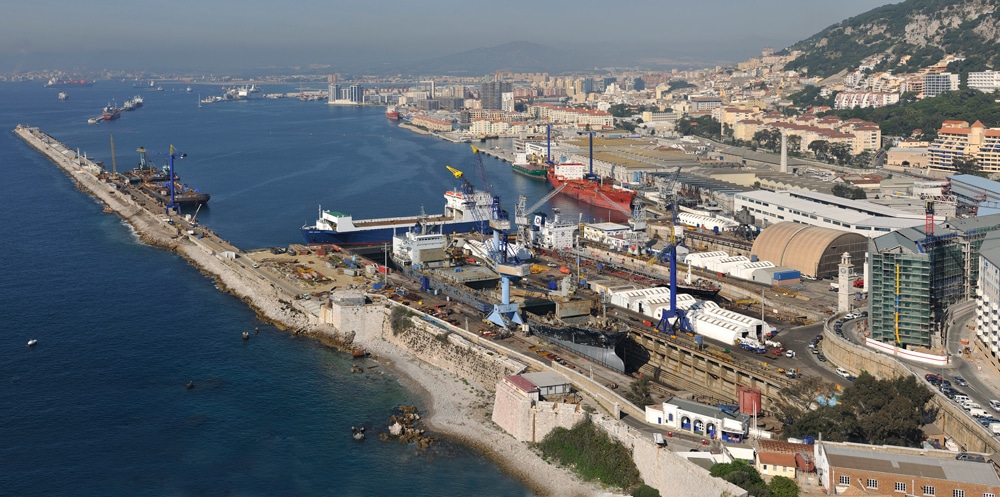The need for ship owners to comply with new rules on environmental responsibility should not disguise the fact that choosing the right repair facility is a critical commercial decision, according to Gibraltar-based Gibdock.
With owners required to respond to new rules on invasive species and emissions, the Western Med’s gateway repair facility is nonetheless seeing a stronger than expected surge in interest in ballast water management system and exhaust gas scrubber work. Richard Beards, Managing Director, Gibdock, attributes the upturn in inquiries to the yard’s enduring advantages of location, quality of work and on-schedule redelivery.
“We have undertaken significant ballast water work over the last 18 months and in the first half of 2018 we have had more enquiries than ever before,” says Mr Beards. “At present, it’s fair to say that there are more conversations around ballast water retrofit installations than scrubber retrofits, but both are fast becoming areas of focus for customers. Some of the discussions relate to turn-key projects, but others are more about preparations onboard before installation.”
The Ballast Water Management Convention, whose implementation timetable started to become a reality after entry into force last year, suggests up to 60,000 commercial vessels must be fitted with BWMS within six years. Meanwhile, one way of complying with IMO’s 2020 sulphur emissions cap is to retrofit an exhaust gas scrubber. On both counts, Gibdock is gearing up to handle requirements for retrofit work, according to Richard Beards, Gibdock Managing Director.
Gibdock projects to date have included the installation of skid-mounted UV ballast water treatment systems for well-known owners in the offshore support and cable laying sectors. Here, in close collaboration with several manufacturers, Gibdock has taken care of all cabling layout and electrical connections, as well as fabricating, galvanizing and fitting pipework, and installing pumps, filters, UV elements, control panels and valves.
The yard has also established a proven record for scrubber retrofitting. One of its most notable projects to date involved five product tankers for Norbulk, allowing the owner to continue using heavy fuel oil instead of more expensive marine gas oil while meeting IMO rules on emissions in Sulphur Emissions Control Areas. In this case, projects involved installations covering the main engines, auxiliary engines and ships’ boilers and included substantial steel fabrication, electrical cable laying and pipework.
“Upcoming changes in legislation will mean more owners will be looking to carry out retrofits to keep them compliant,” adds Mr Beards. “We have the facilities, the team and the experience to carry out these projects with minimal downtime to the vessels.”
Mr Beards adds that business activity related to compliance has come on top of strong performance for Gibdock’s shiprepair and drydocking work overall in the first part of 2018.
New customers during the first half have included Greek company Antares Ship management, which brought in the bulk carrier St Elias for a series of jobs carried out alongside, while overall performance had been spurred on by returning customers in the offshore support sector. “We are seeing a similar level of offshore work in the first half of 2018 to last year, which is quite an achievement given the continued pressure in offshore markets and the tough competition for work of this type,” Mr Beards observes.
Demand from German containership owners has also been strong, where Gibdock’s key selling points remain a location that allows ships to come in without route deviation and a reputation for high standards delivered on schedule and on budget, he adds. Tanker activity has increased, while the local ferry refit and repair season has been busy and broadly in line with usual levels of work.
“Overall we are pleased that the volume of work being carried out at the yard in 2018 is similar to that achieved last year,” says Mr Beards.

